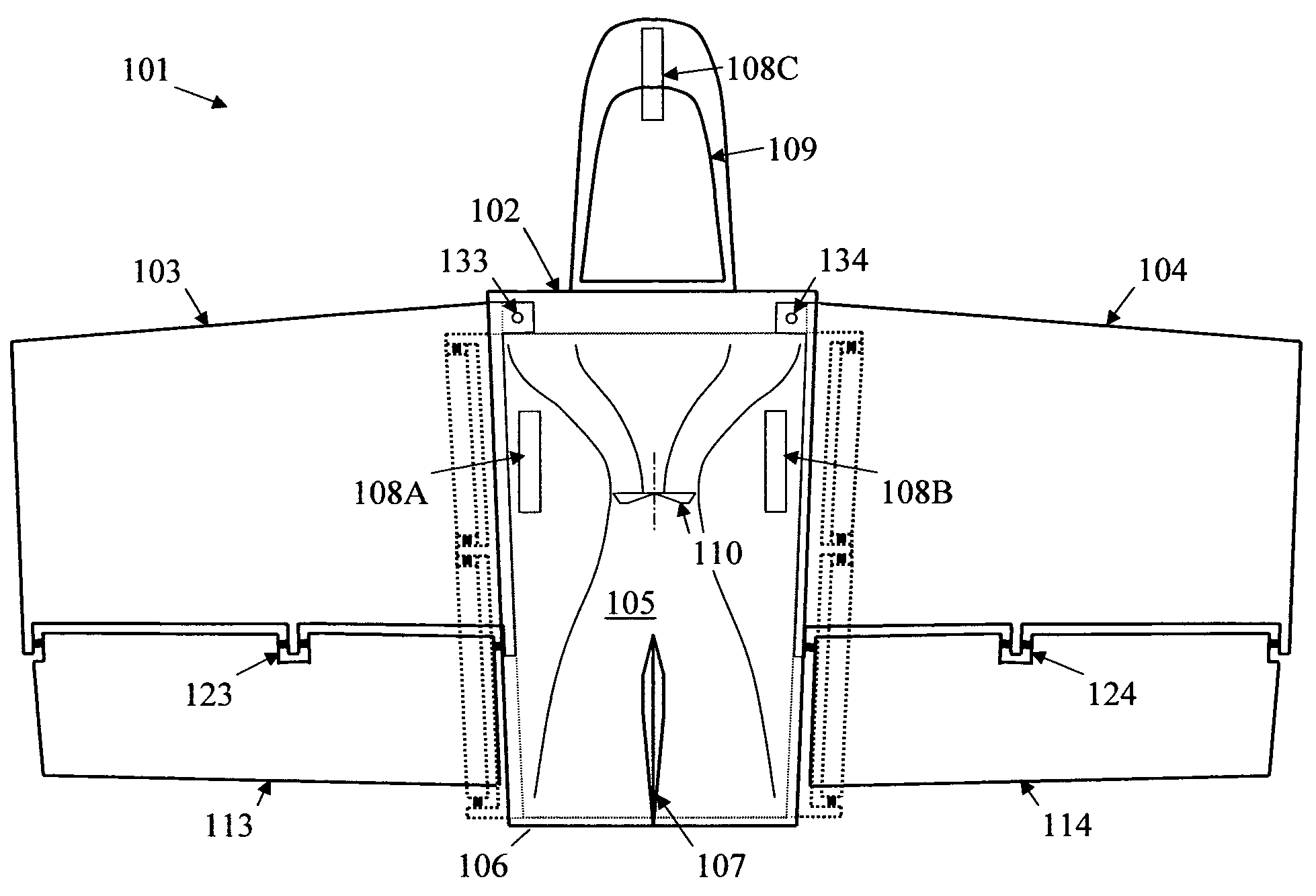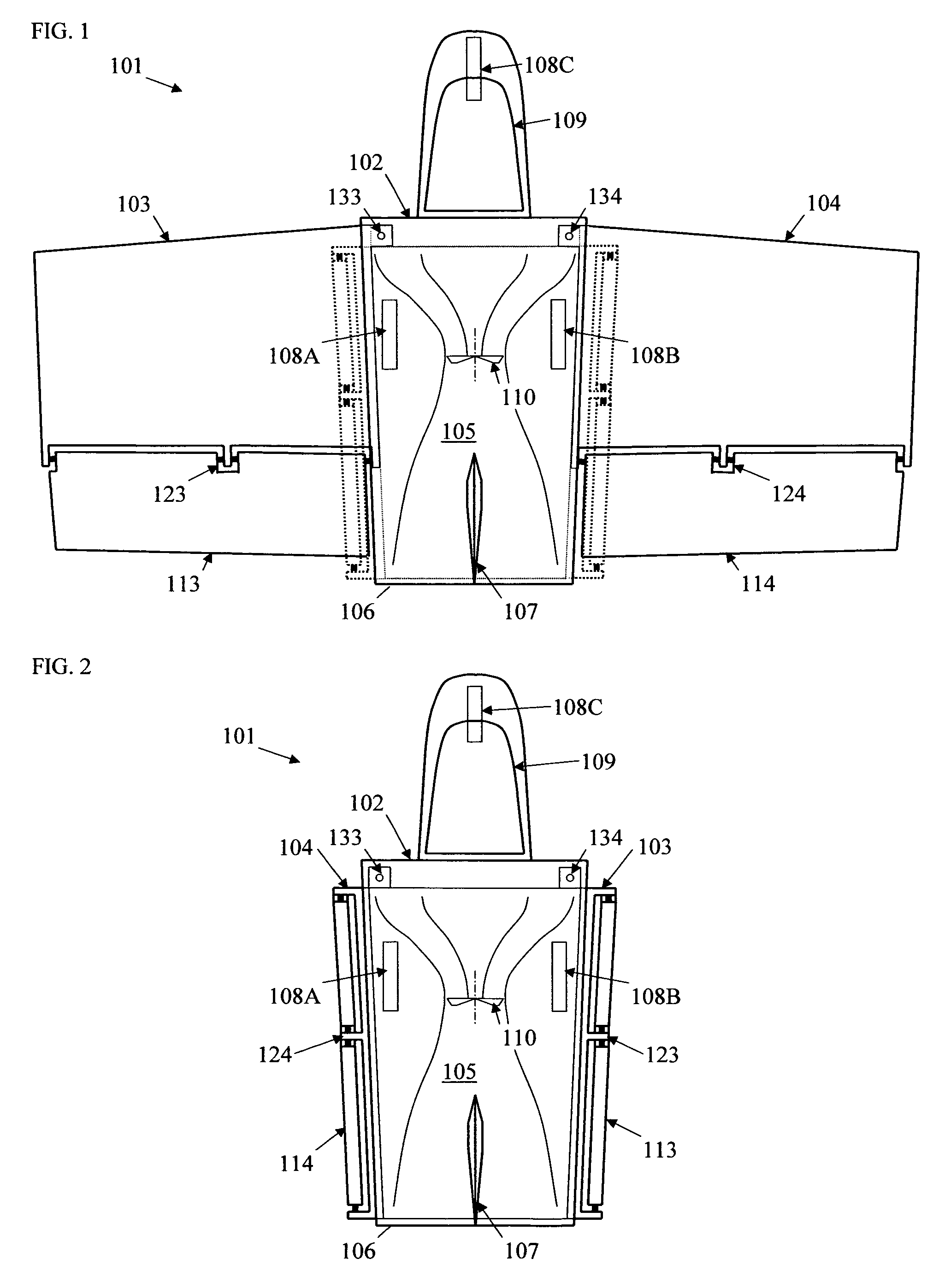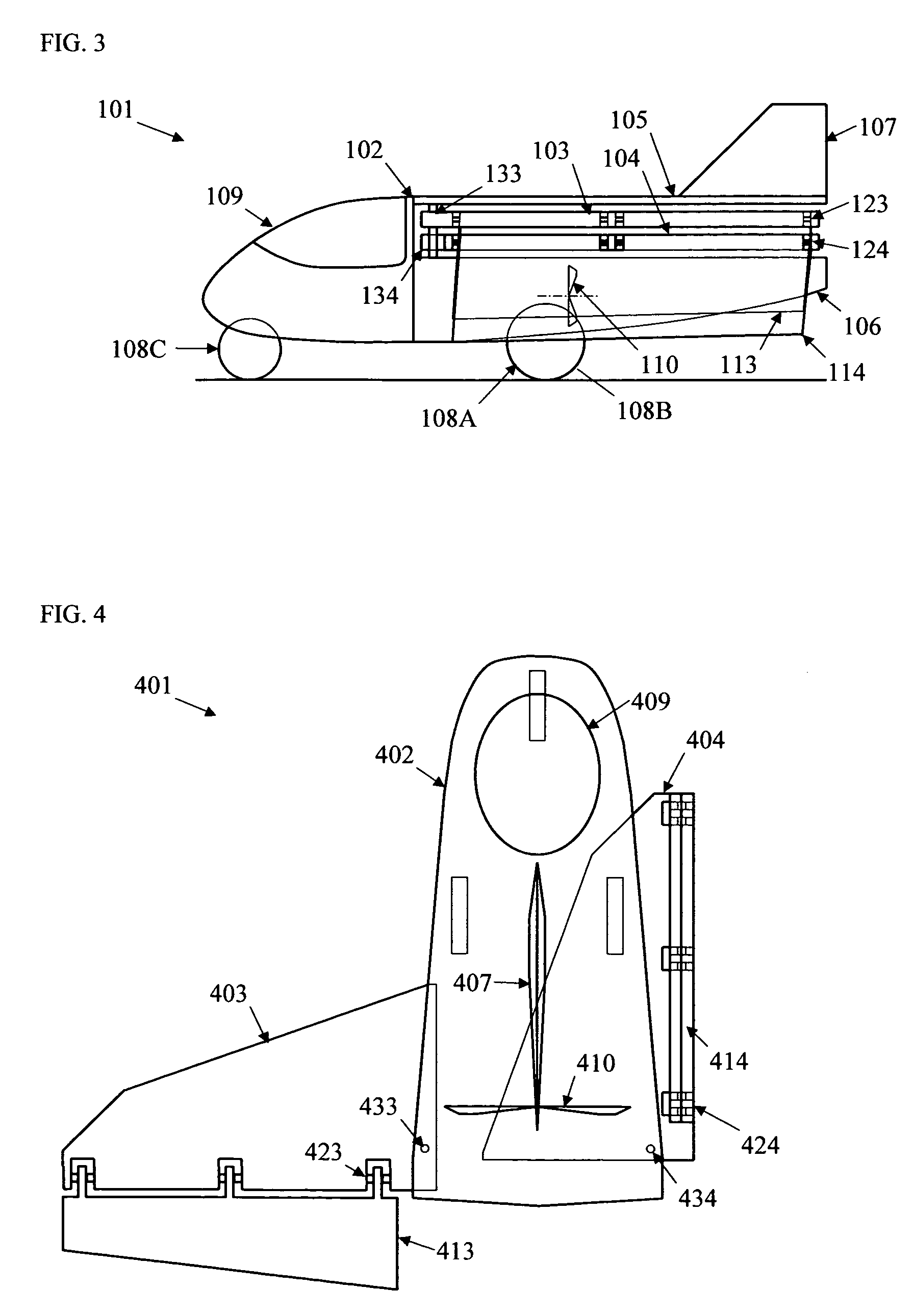Aircraft with fixed, swinging and folding wings
a technology of fixed wings and folding wings, applied in the field of aircraft with wings, can solve the problems of difficult storage of airplanes, lack of aircraft production and flexibility in their use, and large so as to reduce the space required for maneuvering, reduce the width of the aircraft, and ensure the effect of flight efficiency
- Summary
- Abstract
- Description
- Claims
- Application Information
AI Technical Summary
Benefits of technology
Problems solved by technology
Method used
Image
Examples
Embodiment Construction
[0011]FIGS. 1, 2, and 3 show a preferred embodiment of the invention, which is an aircraft 101 with a body 102, a left wing 103, and a right wing 104. The aircraft is an airplane, that is, an aircraft that is lifted in flight by wings which may be fixed with respect to the rest of the aircraft while flying.
[0012]The term “wing” has been used by others to describe both wings of an airplane together, and is linked with the terms “monoplane” (one wing), “biplane” (two wings, one atop the other), “tandem wing” (two wings, one following the other), etc. It should be clearly understood that the use of the term “wings” in describing and claiming the invention does not limit the invention to biplanes, tandem wing aircraft, etc.
[0013]It should also be clearly understood that while the wings are said to be “fixed”, this term, as is commonly understood by those skilled in the art, as in “fixed-wing aircraft,” does not preclude the moving of the wings or parts thereof in flight for control, eff...
PUM
 Login to View More
Login to View More Abstract
Description
Claims
Application Information
 Login to View More
Login to View More - R&D
- Intellectual Property
- Life Sciences
- Materials
- Tech Scout
- Unparalleled Data Quality
- Higher Quality Content
- 60% Fewer Hallucinations
Browse by: Latest US Patents, China's latest patents, Technical Efficacy Thesaurus, Application Domain, Technology Topic, Popular Technical Reports.
© 2025 PatSnap. All rights reserved.Legal|Privacy policy|Modern Slavery Act Transparency Statement|Sitemap|About US| Contact US: help@patsnap.com



